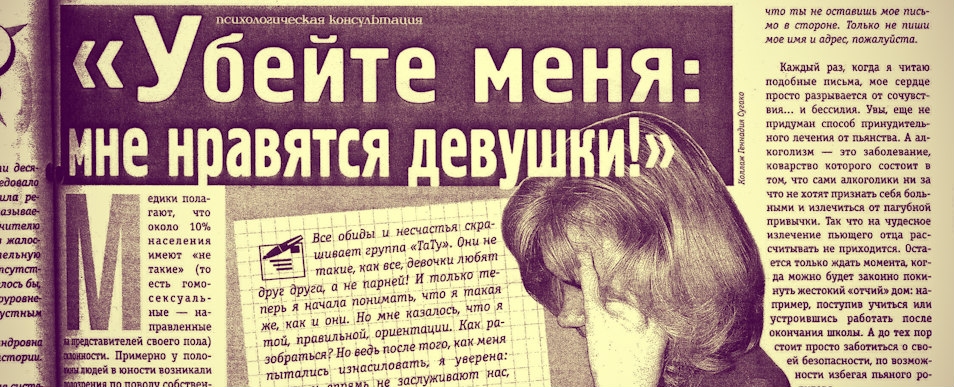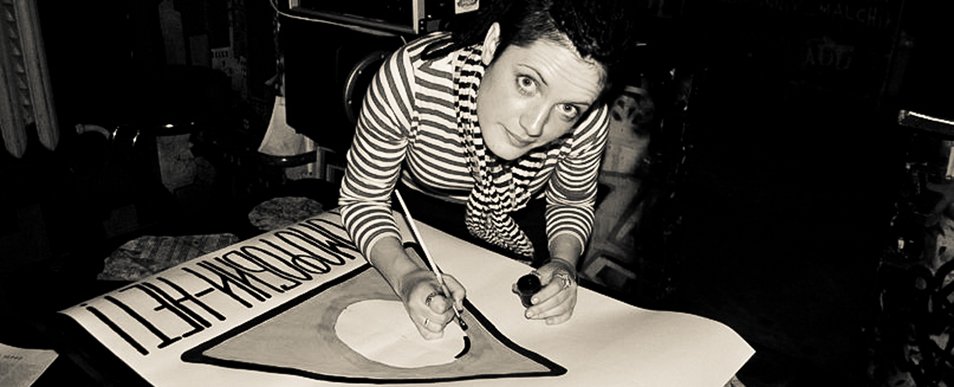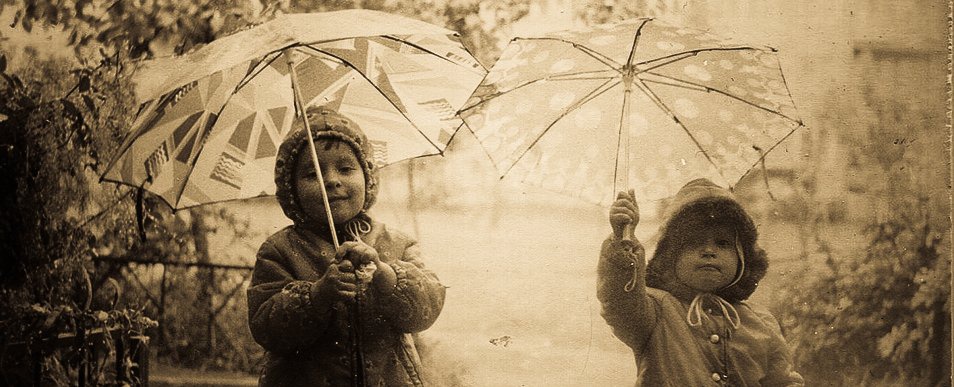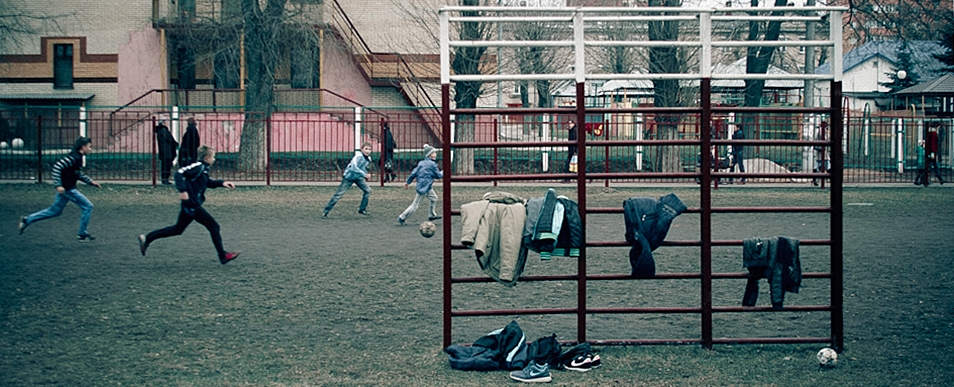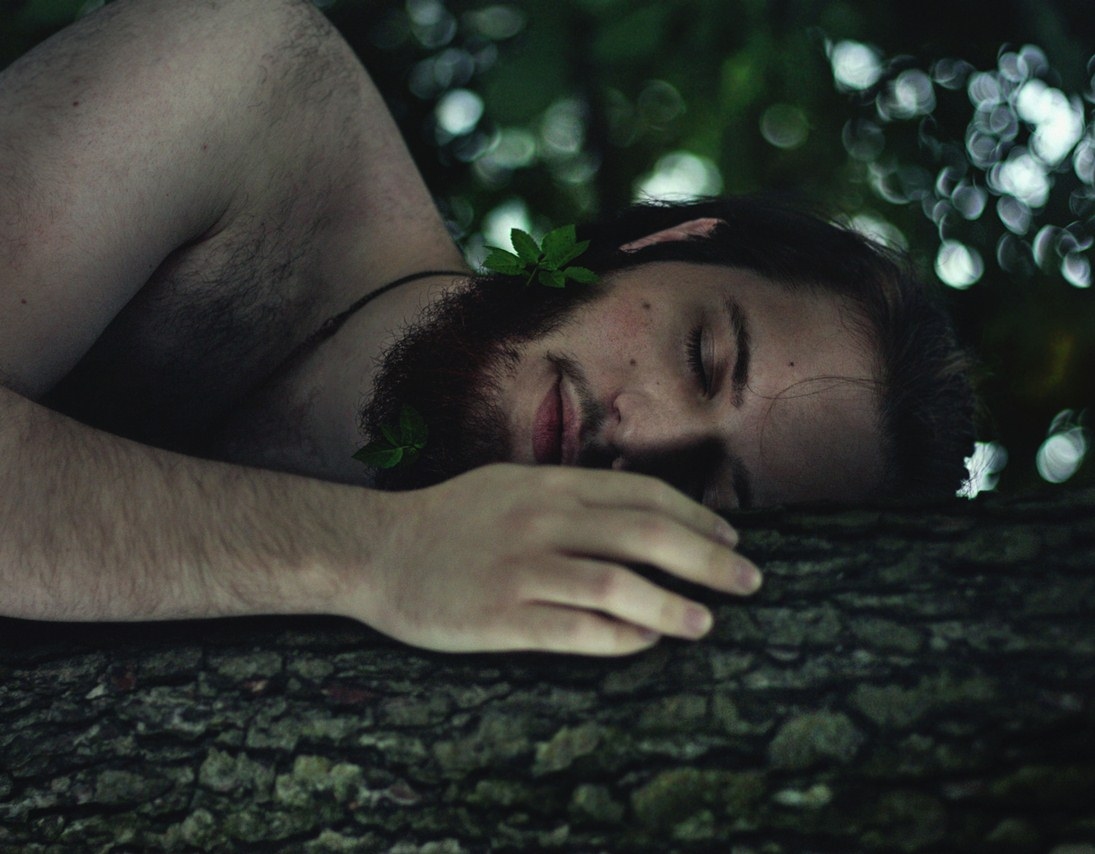The responses of psychologists and journalists working for the №1 newspaper for adolescents “Perehodnoi Vozrast” (The coming of age) (1994-2005) to letters sent by homosexual adolescents.
These were “heartfelt pleas” (I am struggling a lot. At times I ask myself: why did my mother bring me into this world? How did I deserve this?”), desperate attempts to find at least some kind of information: (“I am a lesbian. Are there many people in Belarus of this non-traditional sexual orientation? Do they exist at all? I do not know what to do. Who should I turn to?) and requests for help: (“Please help me. I do not know what to do – should I tell my parents, have a talk with them? I can no longer just keep this inside myself”).
I would like to present some examples of how journalists and psychologists working for the №1 newspaper for adolescents “Perehodnoi Vozrast” responded to such letters. I looked at the archives of the newspaper, starting from when it was launched in 1994 until 2005. Articles that are dedicated to homosexuality started appearing from 1997.
“Gay – somewhat different from the rest”
Despite the attempts to create a positive image of gays and lesbians, the articles in the newspaper continued to medicalize homosexuality, supporting the divide of “us” and “them”. It is enough to just look at the titles of the articles that deal with homosexuality. “I am not like everyone else”, “Not like the rest”, “Different love”, “Not like everyone else”, “Gay – somewhat different from the rest”.
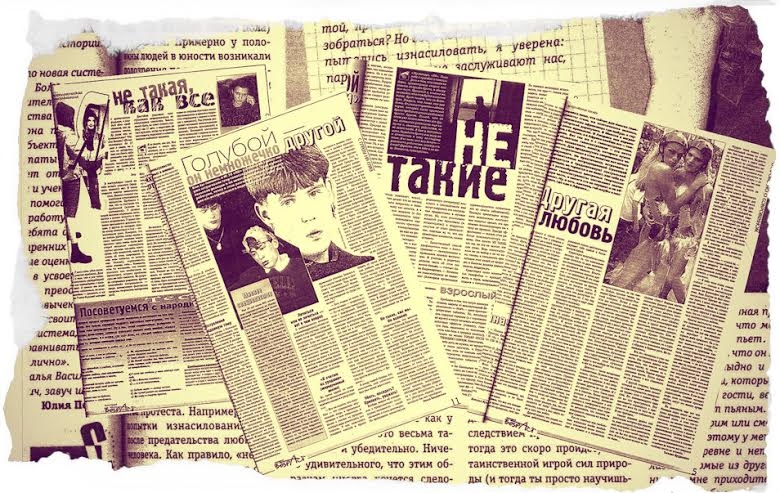
One gets the impression that there aren’t any homosexual people among the readers of the “Perehodnoi Vozrast” newspaper. Despite the fact that this topic is being raised, an LGBT teenager still remains feeling alone. Here are a number of quotes, which clearly show that gays and lesbians remain invisible – people who do exist somewhere, about whom we can already speak, but who for now do not exist among “us”.
“Today, in the majority of countries, people with a non-traditional sexual orientation are treated with acceptance. Their different sexual orientation does not impede them from occupying a high position at work, developing a professional career, enjoying respect and recognition. I think this kind of tolerant attitude is the most correct and healthy one. If nature itself at times goes off track in the development of human sexuality – this cannot be ignored. It is simply inhumane to demand that these people love the way we, normal people, love.
From the article “Goluboi – on nemnozhechko drugoi” (Gay – somewhat different from the rest), 2000
One’s sexual orientation cannot be corrected. Decades of attempts to do this with the use of psycho-correction have been to no avail. It is much more productive to provide psychological support to these people. They are simply NOT LIKE US, but this does not mean that they are worse. They did not choose homosexuality and it is not their fault: unfortunately, their orientation is the result of nature and their close ones should be understanding and should offer help and support.”
From the article “Ne takiye” (Not like the rest), 2002
“To treat or not to treat – that is the question”
When answering the letters of adolescents, journalists often simultaneously express two opposite and mutually contradicting opinions. On the one hand they are trying to “keep up with the times” by saying that “this is normal”, but already in the next paragraph contradict themselves.
For example, they write that the World Health Organization has removed homosexuality from their list of disorders (“It is possible to speak about the need for treatment in cases when the person, because of their sexual orientation, feels a certain sense of discomfort. If for the person in question and people around this is not an issue, then there is absolutely no reason for a medical intervention”.) But at the same time, they continue to medicalize and pathologize homosexuality, which is clearly expressed in the language that they use (“homosexualists”, “deviation”, “divergence”, “diagnosis”, “correction”, “prophylactic treatment”, “medical treatment”, etc).
“There exists a medical term – sexual deviation. It means “a deviation in one’s intimate life, which is incompatible with the established moral norms and traditions”. Homosexualism is a sexual deviation, which is expressed in the sexual attraction towards people of the same sex. According to contemporary scientific research, homosexualism is not a disorder and not a perversion. But because in our cultural tradition, it is still judged in the negative light, people of this sexual orientation often feel themselves as social outcasts and enter a depressive state. That is why scientists are working on the problem of re-orientation of homosexualists. And in Nizhniy Novgorod, there is a famous psychotherapist Jan Holand, who has been successful at correcting the sexual orientation of his 60 patients. Over a period of 30 years! Specialists consider this to be an excellent result, and based on this example, you yourself can decide whether this is a difficult task”.
From the article “Tragediya ili sud’ba” (Tragedy or fate), 1997
“Over the course of obtaining more information (when the adolescent watches erotic scenes in the movies, reads certain literature) psychologists and sexual health specialists can still guide the teenager’s sexual preferences in the right direction. But if the desire has already been fulfilled (more than once) and the person in question received pleasure from it, one can forget the hope that the sexual orientation can be changed”.
From the article “Ne takiye” (Not like the rest) 2002
When offering to clarify the terminology, journalists often get confused themselves. Thus, in the October 1998 edition of the newspaper, the question of: “Could you explain what is transsexualism and tell about people who fall into this category”, journalists respond as follows.
“First of all, let us clarify the terminology. There are two smart words that begin with the term “trans”, which are used to identify people that belong to a special category: transsexual and transvestite. For us, Slavic people, these concepts are distinguished as follows: transvestites are people who are overtaken by the desire to wear clothes indented for the opposite sex and who physically remain as nature has created them. And transsexuals are desperate people who resort to a surgical intervention for sex-correction. Beyond this distinction there are no other concepts, beyond all are transvestites.”
The image of a homosexual in the newspaper “Perehodnoi Vozrast”
As I have mentioned above, often journalists try to create a positive image of a homosexual person, including by presenting examples of “distinguished individuals (the newspaper mentions the sexual orientation of Rudolph Nureyev, Tennessee Williams, Elton John). But at the same time, they present a very stereotypical view about the lifestyle of homosexuals. Thus, according to the newspaper, homosexuals are predominantly men, who lead a bohemian lifestyle, which one “can easily by tempted by, when one is young”.
“Many homosexuals have well-stocked libraries of the most interesting books, video materials, collections of vinyl records and audio recordings. They are more attentive than “regular” men towards their appearance. Among the movies, books and photographs, the majority is of course, of a certain genre. Plus, there is the cozy interior, a cup of coffee, a glass of cognac – and so, that, which not so long ago was perceived as sinful and wildly absurd, starts being seen as romantic and enticing…The age of puberty, or sexual maturity, is of a decisive importance for the development of a person’s sexual orientation. And to a great extent, it depends on you yourselves, the 12-17 year old young people, how your future life will turn out. A tender, beautiful wife, amusing children – perhaps today this is not something that appeals to you. But are you ready to say no to this - in principle and in general? Think for yourselves, decide for yourselves…”
From the article “Tragediya ili sud’ba” (Tragedy or fate), 1997
“Many youth idols honestly admit to their “gay tendencies”, and at times even take advantage of their sexualized image in order to maintain the interest towards their persona. And this promotes this sort of “trend” of same-sex love, when teenagers, solely due to their desire to imitate their idols, follow blindly this way of sexual behaviour.”
From the article “Goluboi – on nemnozhechko drugoi” (Gay – somewhat different from the rest) 2000
“Homosexualists are wonderful friends for women. I have a lot of acquaintances who are like this, and my best friend is also gay. He is a well-groomed, elegant young man. Quite a dignified gentleman, who excites envy in the hearts of the uninformed. He is a designer. One can talk to him about anything and he never forgets to bring me flowers.”
From the article “Drugaya lyubov” (Different love) 2003
While veiling their advice in supposed care for homosexual teenagers, the journalists of “Perehodnoi Vozrast” persistently insist that they remain silent. For example, this was the response to a letter which starts off with the sentence “Kill me: I like girls!”:
“Unfortunately our society is not very tolerant towards those who are “unlike the rest”. While you still have not figured it out for yourself, there is no need to disclose your doubts and thoughts. At the end of the day, time will show whether your current bitter doubts are just the result of past failures (which means that this will soon pass) or the result of the mysterious interplay of the forces of nature (and then you will simply learn to lead a normal life, being the way you are)” (2003)
Despite attempts to deprive them of their voice, homosexual teenagers nevertheless find ways to reclaim it. Letters start appearing in the newspaper, in which the young people are not just asking for help, but are also asserting themselves as “no different from the rest”, telling about their problems and even attempting to educate the journalists and psychologists of this newspaper.
One of the letters published in the newspaper in 2003:
“Hello, “PV”! I am writing this letter because I think that many would be interested to look at the problem of homosexualism from the perspective of the sexual minorities themselves. I would really like you to publish this letter because I am confident that many people need to read it. It is sad to hear opinions and advice such as “there is no need to talk about this, this is your private life, nobody except your close ones should know about this”. Why should I have to hide who I am when this is part of me? And if this wasn’t part of me, then I would be a totally different person. This is part of me and I love it! And I will work on making sure that other people love this part of me too!” – One who is like the rest
It is telling that the attempt to assert oneself as someone who is just “like the rest”, is met with opposition. The letter, which is signed with “one who is like the rest”, journalists still titled as “I am a bit unlike the rest…I am a lesbian”.
Good as you
Nevertheless, in the newspaper one can already read not just rare letters and responses to them which are in the style of “eradicating ignorance”, but there is already a discussion unfolding.
In this year’s edition number 26 we published the letter of a person asserting herself as being like the rest under the title - “I am a bit unlike the rest…I am a lesbian”. To be honest, we did not expect this topic to touch so many people. We were literally flooded with letters about a love that is different. Today we are publishing two of them, in order to continue the discussion”. (2003)
Here are some excerpts from the 2 mentioned letters:
“So why don’t you, young woman claiming to be “like the rest”, think about your future (if of course you care about it at all). Every woman dreams of a good husband and children…Do you really think that you will be happy without all this? I am sorry, but I do not think so”.
“It is true, that for us it is rare (if at all possible) to find journals, newspaper or at least brochures for teenagers with a non-traditional sexual orientation. Nowadays it is not easy for adolescents in general, and for those who are of a non-traditional sexual orientation – especially. I know what I am talking about. I am a lesbian. I think that it would be really great if there was a journal (or newspaper) in Belarus for people like me, which would allow us to communicate with and get to know each other…And another thing. Dear girls and boys! Do not be ashamed of your sexual orientation and never let anyone mistreat you. Remember, you are also people, even though somewhat different, and you have the right to happiness and freedom!”
Thereby, at some point in 2003, homosexual teenagers are nevertheless starting to “appear” on the pages of the newspaper. Despite the fact that this phenomenon is still very sporadic, they can no longer be ignored.
“I would like to present to you my thoughts regarding homosexualism. In support of it, not out of a feeling of solidarity (I am neither a lesbian nor a transsexual) but because the form of relationships between people who prefer sexual partners of the same sex, is not contradictory to human nature. The way that representatives of minority groups follow their desires and needs in terms of sex, love and social relations, is just as natural as the self-expression of any one of us. What I am defending is not a crime, but emotions, freedom, love, which cannot be divided into “like the rest” and “not like the rest”. I am defending the conscious choice of those who have clearly figured out their needs, and are as GOOD AS YOU.”
“Homosexuality is not a psychological disorder, but the result of specific conditions of development of one’s identity. It is a particular feature of the development of an individual – just like one’s temperament, character or aptitude for different fields of science. It is unlikely that even in 10 years our much-boasted, pseudo-democratic society will reach a state of development, in which we would be able to calmly accept (I am not even talking about understanding) people of the same-sex who love each other”
From the article “Glavnoye, chtoby vybor byl svobodnym” (The most important is that the choice is free”), 2003

